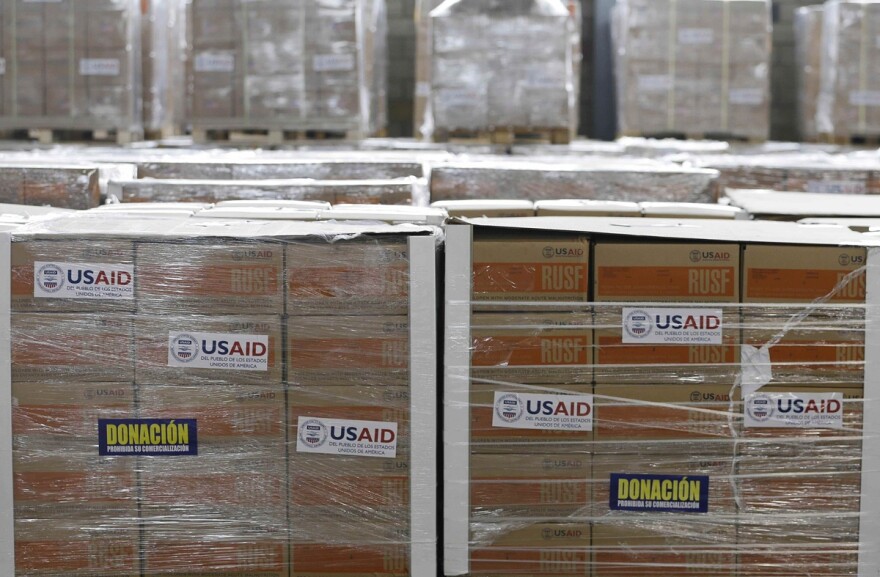An Illinois State University alum was among the more than 1,000 employees let go from the U.S. Agency for International Development [USAID] when the foreign aid agency was dismantled this summer.
Bill Gugerty, who'd been working in a financial management role in his 12 years with the U.S. government agency, was among the last to leave his post in Columbia in September.
Gugerty said while the job had its share of bureaucracy and cumbersome policies, he described his work as “hugely fulfilling."
“You could come home at night knowing that your role was pushing toward a difference in that community and for the American people,” Gugerty said in an interview on WGLT’s Sound Ideas.
Gugerty graduated from ISU in 2007 when he earned bachelor’s and master’s degrees in public accountancy.
Gugerty noted he worked for USAID for 11 years, 11 months and 11 days, serving in four foreign countries — Hungary, Peru, Pakistan and Columbia, where he worked for 10 months before his termination. That was after a career in finance that he found less fulfilling, and him deciding he wanted to work abroad.

In each country, he said USAID worked on a list of State Department-approved objectives that were intended to help the host nation develop and support its own government, economics and social systems.
Gugerty said he did not see waste, fraud and abuse in his fiscal management role at the now-defunct agency.
“Short answer is no,” he said. “The real answer is more complex, but we had a system to detect [waste]. We had ways to report if somebody was finding out there was something.”
Gugerty said critics misrepresented the foreign aid agency's work when they called for it to be shut down.
“The new administration disagreed with those priorities and labeled what they disagreed with as waste, but that’s not the definition of waste in terms of fraud, waste and abuse,” he said.
Gugerty explained there were close to a dozen examples that fed that narrative, including talk of what critics labeled a USAID-funded "trans opera" in Colombia.
“When we heard about this, we were like what is that?” said Gugerty , adding upon further investigation, it turned out one of the opera performers was transgender.
“It wasn’t like a trans opera. It was an opera,” he said, noting it was funded not by USAID but by the U.S. State Department, whose secretary, Marco Rubio, temporarily served as USAID acting director and was one of the agency’s vocal critics.
President Trump issued an executive order on Jan. 20, the day he was sworn in, that halted all foreign aid “that is not fully aligned with the foreign policy of the President of the United States.”
Gugerty said the federal government only started to review USAID’s programs after it already sent out termination notices to the countries it served, but that it got swept up in the current as the Trump administration was working quickly to dramatically reshape government in the opening months of the term.
“There was a lot of outcry. By the time Congress was getting around to exercising some aspect of the power of the purse, there were so many other issues happening, that I think it was ... [the thought] that one was lost, we need to deal with whatever threat of whatever institution is occurring at that moment,” he said.
In the end, Gugerty said USAID’s dismantling will damage U.S. relations across the globe.
“That’s a huge amount of not only goodwill that we threw out the window, but a huge opportunity that we gave to other actors in other regions,” he said.


